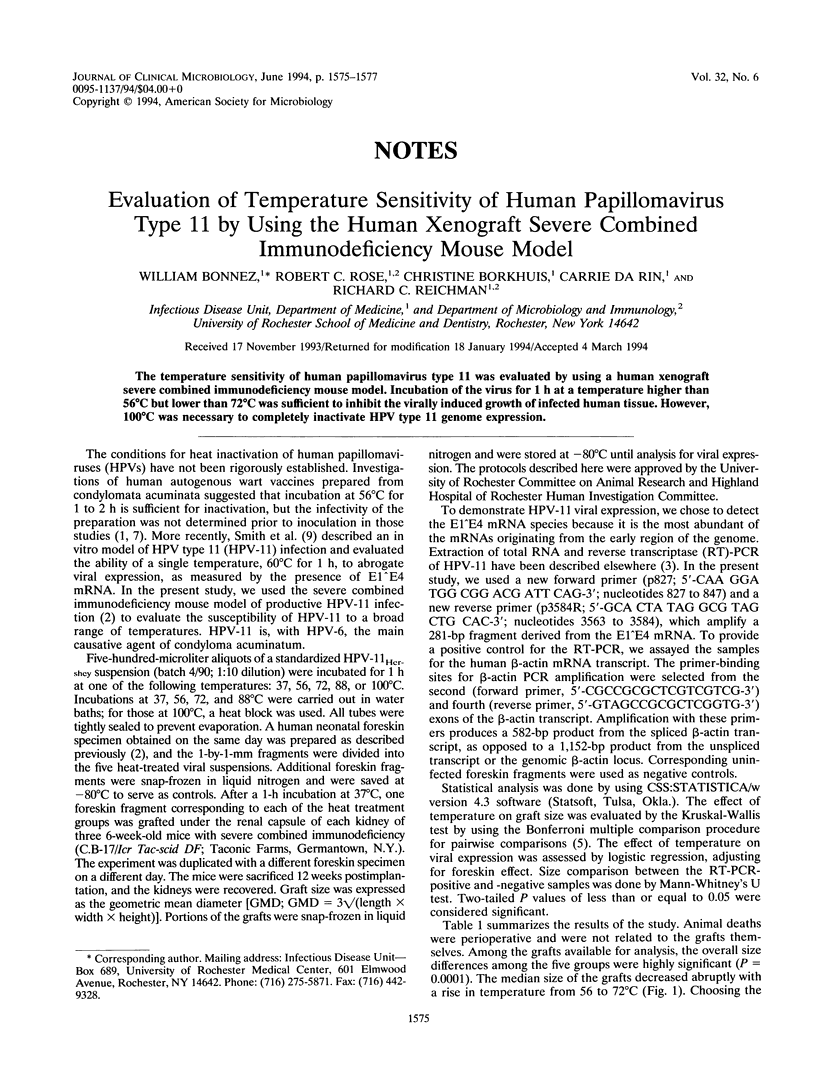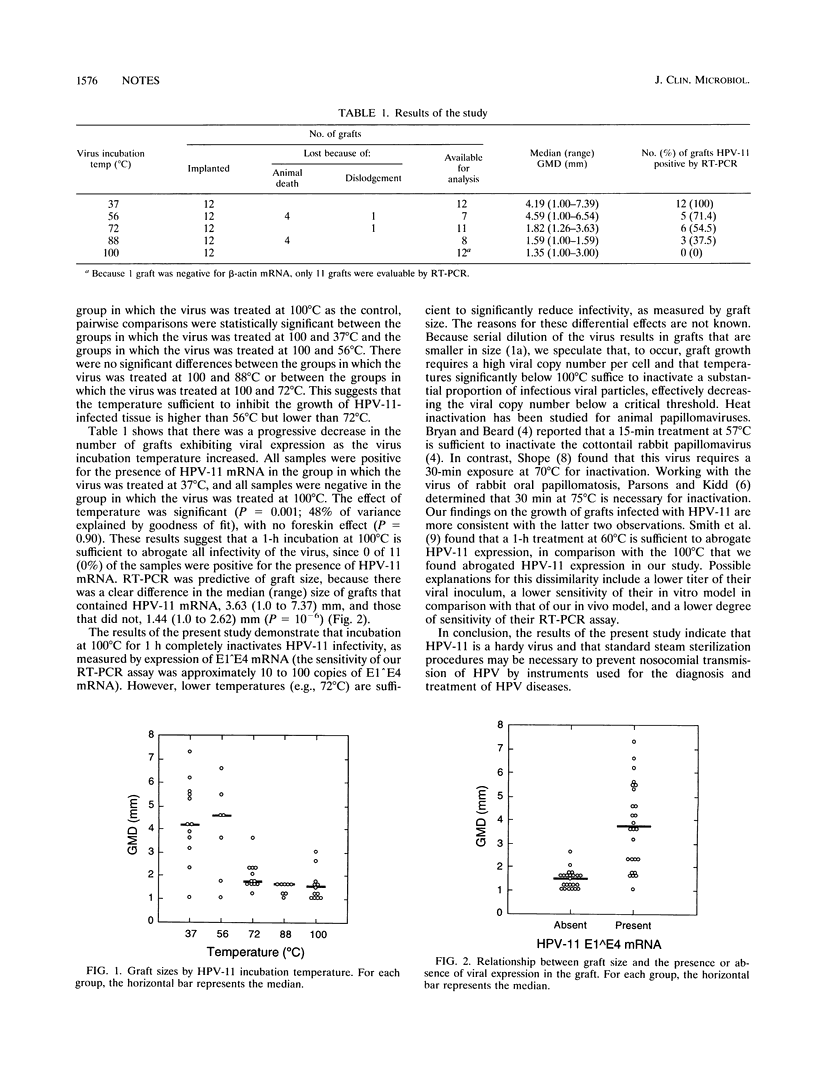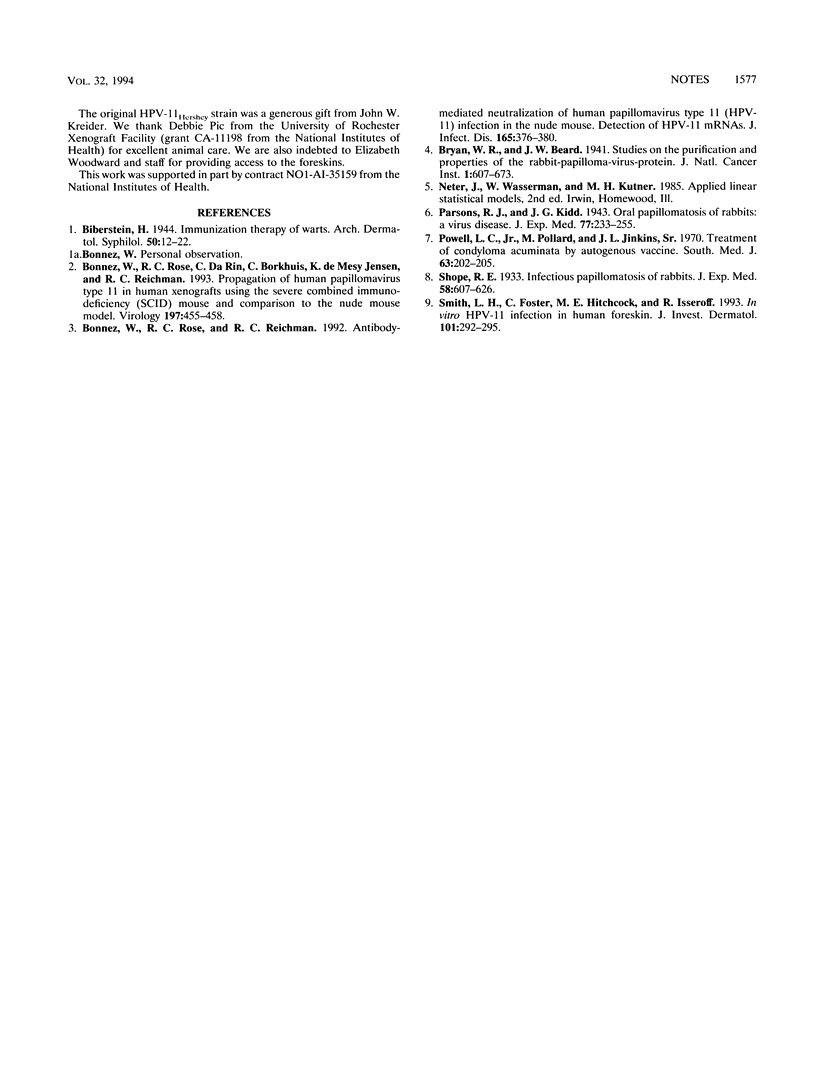Abstract
The temperature sensitivity of human papillomavirus type 11 was evaluated by using a human xenograft severe combined immunodeficiency mouse model. Incubation of the virus for 1 h at a temperature higher than 56 degrees C but lower than 72 degrees C was sufficient to inhibit the virally induced growth of infected human tissue. However, 100 degrees C was necessary to completely inactivate HPV type 11 genome expression.
Full text
PDF


Selected References
These references are in PubMed. This may not be the complete list of references from this article.
- Bonnez W., Rose R. C., Da Rin C., Borkhuis C., de Mesy Jensen K. L., Reichman R. C. Propagation of human papillomavirus type 11 in human xenografts using the severe combined immunodeficiency (SCID) mouse and comparison to the nude mouse model. Virology. 1993 Nov;197(1):455–458. doi: 10.1006/viro.1993.1611. [DOI] [PubMed] [Google Scholar]
- Bonnez W., Rose R. C., Reichman R. C. Antibody-mediated neutralization of human papillomavirus type 11 (HPV-11) infection in the nude mouse: detection of HPV-11 mRNAs. J Infect Dis. 1992 Feb;165(2):376–380. doi: 10.1093/infdis/165.2.376. [DOI] [PubMed] [Google Scholar]
- Powell L. C., Jr, Pollard M., Jinkins J. L., Sr Treatment of condyloma acuminata by autogenous vaccine. South Med J. 1970 Feb;63(2):202–205. doi: 10.1097/00007611-197002000-00017. [DOI] [PubMed] [Google Scholar]
- Smith L. H., Foster C., Hitchcock M. E., Isseroff R. In vitro HPV-11 infection of human foreskin. J Invest Dermatol. 1993 Sep;101(3):292–295. doi: 10.1111/1523-1747.ep12365409. [DOI] [PubMed] [Google Scholar]


